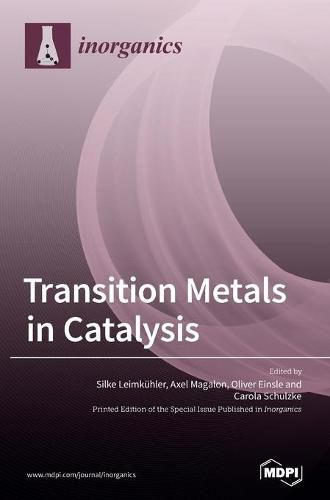Readings Newsletter
Become a Readings Member to make your shopping experience even easier.
Sign in or sign up for free!
You’re not far away from qualifying for FREE standard shipping within Australia
You’ve qualified for FREE standard shipping within Australia
The cart is loading…






This title is printed to order. This book may have been self-published. If so, we cannot guarantee the quality of the content. In the main most books will have gone through the editing process however some may not. We therefore suggest that you be aware of this before ordering this book. If in doubt check either the author or publisher’s details as we are unable to accept any returns unless they are faulty. Please contact us if you have any questions.
Iron-sulfur (FeS) centers are essential protein cofactors in all forms of life. They are involved in many key biological processes. In particular, Fe-S centers not only serve as enzyme cofactors in catalysis and electron transfer, they are also indispensable for the biosynthesis of complex metal-containing cofactors. Among these cofactors are the molybdenum (Moco) and tungsten (Wco) cofactors. Both Moco/Wco biosynthesis and Fe-S cluster assembly are highly conserved among all kingdoms of life. After formation, Fe-S clusters are transferred to carrier proteins, which insert them into recipient apo-proteins. Moco/Wco cofactors are composed of a tricyclic pterin compound, with the metal coordinated to its unique dithiolene group. Moco/Wco biosynthesis starts with an Fe-S cluster-dependent step involving radical/S-adenosylmethionine (SAM) chemistry. The current lack of knowledge of the connection of the assembly/biosynthesis of complex metal-containing cofactors is due to the sheer complexity of their synthesis with regard to both the (genetic) regulation and (chemical) metal center assembly. Studies on these metal-cofactors/cofactor-containing enzymes are important for understanding fundamental cellular processes. They will also provide a comprehensive view of the complex biosynthesis and the catalytic mechanism of metalloenzymes that underlie metal-related human diseases.
$9.00 standard shipping within Australia
FREE standard shipping within Australia for orders over $100.00
Express & International shipping calculated at checkout
Stock availability can be subject to change without notice. We recommend calling the shop or contacting our online team to check availability of low stock items. Please see our Shopping Online page for more details.
This title is printed to order. This book may have been self-published. If so, we cannot guarantee the quality of the content. In the main most books will have gone through the editing process however some may not. We therefore suggest that you be aware of this before ordering this book. If in doubt check either the author or publisher’s details as we are unable to accept any returns unless they are faulty. Please contact us if you have any questions.
Iron-sulfur (FeS) centers are essential protein cofactors in all forms of life. They are involved in many key biological processes. In particular, Fe-S centers not only serve as enzyme cofactors in catalysis and electron transfer, they are also indispensable for the biosynthesis of complex metal-containing cofactors. Among these cofactors are the molybdenum (Moco) and tungsten (Wco) cofactors. Both Moco/Wco biosynthesis and Fe-S cluster assembly are highly conserved among all kingdoms of life. After formation, Fe-S clusters are transferred to carrier proteins, which insert them into recipient apo-proteins. Moco/Wco cofactors are composed of a tricyclic pterin compound, with the metal coordinated to its unique dithiolene group. Moco/Wco biosynthesis starts with an Fe-S cluster-dependent step involving radical/S-adenosylmethionine (SAM) chemistry. The current lack of knowledge of the connection of the assembly/biosynthesis of complex metal-containing cofactors is due to the sheer complexity of their synthesis with regard to both the (genetic) regulation and (chemical) metal center assembly. Studies on these metal-cofactors/cofactor-containing enzymes are important for understanding fundamental cellular processes. They will also provide a comprehensive view of the complex biosynthesis and the catalytic mechanism of metalloenzymes that underlie metal-related human diseases.